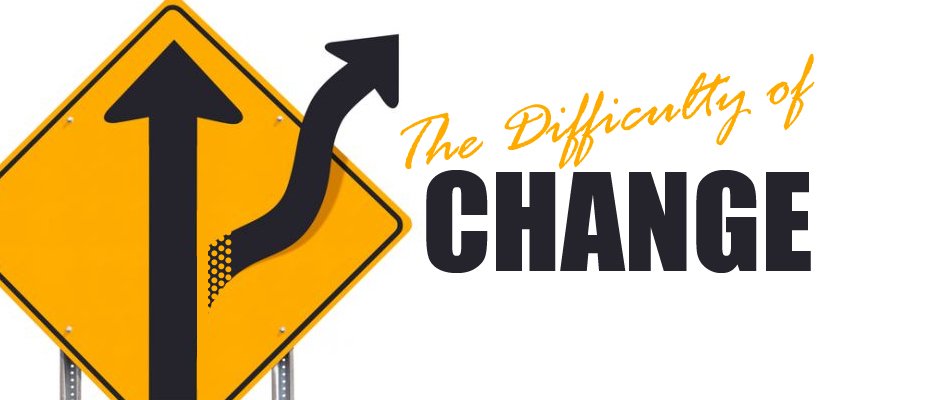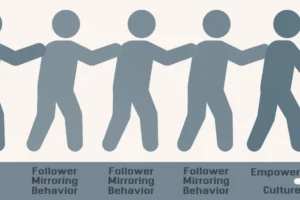Resistance to Change and What You Can Do to Help
The Greek philosopher, Heraclitus, is attributed with saying, “The only constant in life is change.” Dr. Ken Blanchard uses the metaphor of “permanent whitewater (Blanchard, 2018, p. 209).” Both are so true! Therein lies an irony.
Change is constant and forever, yet people continue to resist it, personally and organizationally. Just as 80 percent of us will fail at our New Year’s Resolutions, research by McKinsey and Company demonstrates that at least 70 percent of all organizational transformations fail as well (Luciani, 2015; Bucy, Finlayson, Kelly, & Moye, 2016).
Most of us have been told to do something and probably did not like it. In many ways, that is like telling your spouse to calm down when they are angry. It is just not an effective strategy. I believe that Dr. Blanchard nailed it out of the park when he said, “People don’t resist change – they resist being controlled (Blanchard, 2018, p. 224).” Understanding the nature of people is a critical first step in fundamental change, and the need for validation is a significant component of that nature.
Indeed, theories abound as to why such change is so difficult for us, but Blanchard suggests that the reasons are predictable, and I believe he is right. Blanchard provides us with fifteen reasons why change efforts might fail. They include leadership confusing a change announcement with implementation (telling people what to do), not addressing concerns correctly, not involving those being asked to change, changing without a good reason, a lack of shared vision, and the absence of a collaborative change team.
He goes on to point the finger at a lack of leadership or non-credible leaders, an unaligned organization, a loss of focus, unempowered people, and a lack of accountability. And finally, he points to leaders disregarding how influential the organization’s culture truly is, the fact that possibilities are often not explored correctly, and that when progress is made, it is often not measured or recognized by leadership (Blanchard, 2018, p. 213).
For me, that last point is especially noteworthy, and this is regardless of whether we are talking about change, either personally or organizationally. I have found that a lack of validation is a killer for both morale and engagement. This idea seems to hold true in sports, organizations, and personal fulfillment. Of course, such validation would require recognition, and such attention would require actually noticing the individual’s efforts. The point is that we need to be recognized and acknowledge others; we cannot do that if we are absent or uninvolved.
Former Navy Seal, Brent Gleeson, suggests that transformations fail primarily because of a lack of identifying and celebrating early successes (Gleeson, 2017). To improve this, Gleeson suggests that projects need to be clearly defined, have a timeline and that people need to be held accountable because if the project is not all of this, the chances of being able to celebrate early success are reduced (Gleeson, 2017, para. 28). However, and this is very important to note, we should keep in mind that accountability does not always mean negative or trouble.
Of course, the preceding also means that if you are going to hold someone accountable for failure, you must also be willing to hold them accountable for a victory. If victory is had and celebration is deserved, hold your people (and yourself) accountable. Doing so will validate and engage our people and motivate them to continue with the change process.
Did you enjoy this article? You might also like “The Difficulty of Change and How to Overcome It.”
Resources:
Blanchard, K. H. (2018). Leading at a Higher Level: Blanchard on Leadership and Creating High Performing Organizations. Pearson Education.
Bucy, M., Finlayson, A., Kelly, G., & Moye, C. (2016, May 9). The ‘how’ of transformation. Retrieved July 20, 2020, from https://www.mckinsey.com/industries/retail/our-insights/the-how-of-transformation
Gleeson, B. (2017, July 25). 1 Reason Why Most Change Management Efforts Fail. Retrieved July 20, 2020, from https://www.forbes.com/sites/brentgleeson/2017/07/25/1-reason-why-most-change-management-efforts-fail/
Luciani, J. (2015, December 29). Why 80 Percent of New Year’s Resolutions Fail. Retrieved July 20, 2020, from https://health.usnews.com/health-news/blogs/eat-run/articles/2015-12-29/why-80-percent-of-new-years-resolutions-fail




